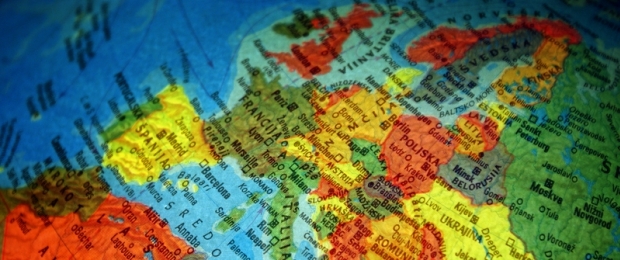
A new era in European democracy
The era of European integration by stealth is over. At least nine EU countries are committed to holding a referendum on the new constitutional treaty. Ultimately, it seems likely that more than half of EU member-states will do so, and that a majority of European citizens will vote directly on the constitution.
This is a seismic shift in EU politics. In the past, many countries have held referenda on whether to join the EU, but only a very few have held them on treaty revisions once they are in. Now referenda are set to become the norm, certainly on treaty changes, and perhaps on enlargements, too.
The eurosceptics' most persuasive argument is that the EU is 'imposed on the people'. They argue that governments forge deals behind closed doors and that unelected bureaucrats in Brussels write EU laws. These allegations are misleading and false: the EU legislative process is democratic, with ample checks and balances. But the EU does have a legitimacy problem. Citizens feel they lack a proper say in shaping important EU decisions. Many pro-Europeans hope that national referenda can change this perception by giving people a sense of ownership of the EU. Some anti-Europeans like referenda for the opposite reason: they think the voters will stop European integration in its tracks.
Referenda are blunt political instruments, but those on the constitution will, hopefully, raise the level of debate on the EU in three ways. First, they will place the EU at the centre of political debate. 'Europe' has never been a major issue in any national election, and European Parliament elections fail to stir the public imagination. This is because Brussels has no power over the things that matter most to electorates, such as health, welfare and education. But referenda could generate better public understanding of the EU, and help to explode the many myths about Brussels - provided they are preceded by well-organised national debates. Second, referendum debates should inject some human drama into normally turgid discussions about the EU. Citizens would be able to associate 'Europe' with identifiable people and clear choices, rather than 'faceless bureaucrats'. Third, referenda should force politicians to unlearn their impenetrable EU-jargon and explain what the Union is about in plain language. This would appeal to today's assertive electorates, who want to be convinced rather than led.
But referenda have their drawbacks, too. In particular, governments can lose. Citizens can say 'no' in a democracy but if just one member-state cannot ratify an EU treaty change, in legal terms it blocks all the others' plans for the future of Europe. The whole Union could be held hostage by a negative referendum in one country - this almost happened in 2001, when the Irish voted against the Nice treaty, though they changed their mind a year later. Depending on which countries vote 'no', and by what margins, the EU would have to choose between ditching the constitution and establishing some form of 'multi-speed' Europe.
After next year's wave of referenda, it will no longer be possible for politicians and technocrats to redesign Europe according to their view of what is best for the people. The genie cannot be put back into the bottle. After so many referenda on the current treaty change - including in countries that have never before held one, such as Belgium, the Netherlands, and possibly even Germany - it will be difficult for governments not to put other kinds of EU issue to a public vote.
Take enlargement. Critics of EU enlargement, and especially the recent accession of ten mainly East European countries, claim that it has been concocted by political elites against the interests of the common people. Turkey is likely to start negotiations to join the EU next year, and one day those negotiations may conclude. Given the controversial nature of Turkish accession, there is a fair chance that several member-states will hold referenda on the matter. If there were a single 'no' vote, Turkey could not join, regardless of what EU governments or the Turkish people thought.
Is it democratic for one electorate to block what 25 EU governments have already agreed? Surely a better system would be for all European citizens to vote on EU issues, with, say, a two-thirds majority required for measures to pass. But most national governments are not yet ready for a Europe-wide direct vote. So Europe will probably be stuck with a complicated system in which some citizens can vote directly on certain EU issues, while others cannot.
The good news about the rise of referenda is that, in future, it will be harder for critics to claim that the EU is inherently undemocratic. But governments and pro-Europeans must seize the opportunities that referenda offer, running active campaigns to convince Europe's citizens of the EU's merits. Otherwise, this new era of direct democracy could lead to an unravelling of the EU.
Steven Everts was a senior research fellow (2000-2004) and Daniel Keohane was ae research fellow (2001-2006) at the CER.
